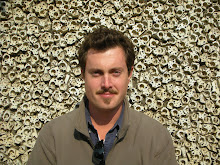
"There is no tragedy in the death of an old man. Forgive him his shortcomings, and thank him for all his love and care." --from Robert Altman's A Prairie Home Companion, 2006
I remember waking up in my frat-house cell in early 1999, turning on the tube and learning of the death of Stanley Kubrick. His final, tarnished Eyes Wide Shut was due for release that summer, a project I had been anticipating throughout the years and years of its gestation. His first film since 1987's Full Metal Jacket, EWS would prove one of his most divisive films, opening amid rumors of extensive recutting by Certified Non-Genius Tom Cruise and a skirmish with the MPAA over an orgy scene that played as something more Disney than debauchery. I got a little choked up that morning upon hearing the news, mostly for all the films that the notorious perfectionist may have had left in his still-vibrant, 70-years-young mind.
So there was a similar choking-up this morning when I read that Robert Altman died yesterday at 81, until I recalled the above line from his latest work. Altman left us with an oeuvre far more extensive than that of Mr. Kubrick, and for that we can be grateful. His work during the 1970's was some of the most exciting filmmaking of that Golden Age, and his most recent entries (with a couple of exceptions) showed that his ear heart touch had not waned in the intervening decades. Altman's deft direction, his uncanny ability to coax from unheralded actors performances worth remembering, his eye for talent and ear for the subtleties of natural dialogue and its overlapping and interweaving, his ability to shift focus not only with his camera but with the microphones as well, have influenced every filmmaker worth his salt who has attempted to catch more than four people in a frame since 1970's M*A*S*H.
Like Kubrick, Altman never failed to make me wonder How'd he do that? His films employed none of the trickery we associate with most cinematic trailblazers, none of the explosions or fast cuts or CGI or other such recent flash-and-bang. What was remarkable about his films is the way that he managed to be the fly-on-the-wall, immortalizing mercurial, minute exchanges between actors within the infinite confines of a working movie set. He was one of the first directors to deploy zooms on his cameras and radio-mic every actor in a scene while still using booms to capture the soundscape of any given filmic landscape. He could do the long take like nobody in the business, and the sound editing on his films was nothing short of perfection. To watch Altman's work is to view the detonation of a tactical nuclear strike, to see the explosions of a moment amid the controlled chaos of everything surrounding the blast. And "controlled chaos" might be the best description of the man's best films. He was a master conductor on a grand stage, an illusionist orchestrating a celluloid medium in a way that always seemed orchestrated, never as haphazard as so many films nowadays, and yet the haphazardness of his famously improvisational sets was what made the orchestrations all the more apparent in the final product. And all the more amazing to witness.
In the days to follow, you will be able to read see hear any number of tributes to Robert Altman. Perhaps the greatest tribute will be evident in the many points on the broad spectrum of talent and age and The Public Eye that the sources of these eulogies will inhabit. Kevin Kline and Lindsay Lohan and Elliott Gould and Neve Campbell and Donald Sutherland and Shelley Duvall and Ryan Phillippe and Meryl Streep and Robin Williams and Liv Tyler and Tom Waits and Julia Roberts and Tim Robbins and Robert Duvall and Julianne Moore and Clive Owen and Jennifer Jason Leigh and Warren Beatty and Julie Christie and Steve Buscemi and Tara Reid and Rene Auberjonois and Lili Taylor and Richard Gere and Kate Hudson and Tim Roth and Helen Hunt and Kenneth Branagh and Farrah Fawcett and Robert Downey, Jr. and countless others will doubtless all have their say as to Altman's legacy. And that's just a small sample of the casts he put together over the years, and only the actors still living to pay tribute. Most will credit him as the greatest director they ever had the privilege of working with, call it an "honor" and cite either a long friendship or a sadly foreshortened collaboration, but one fact remains: Anyone who could find the time, the patience, the wherewithal to put all of those names into the same career had something special that the casual observer might easily overlook. The fact that his casting call has hit its end doesn't leave me with regret the way Kubrick's did, but rather with the knowledge that any tapestry as rich in detail as Robert Altman's filmography will always stand up to multiple viewings.
R.I.P.
